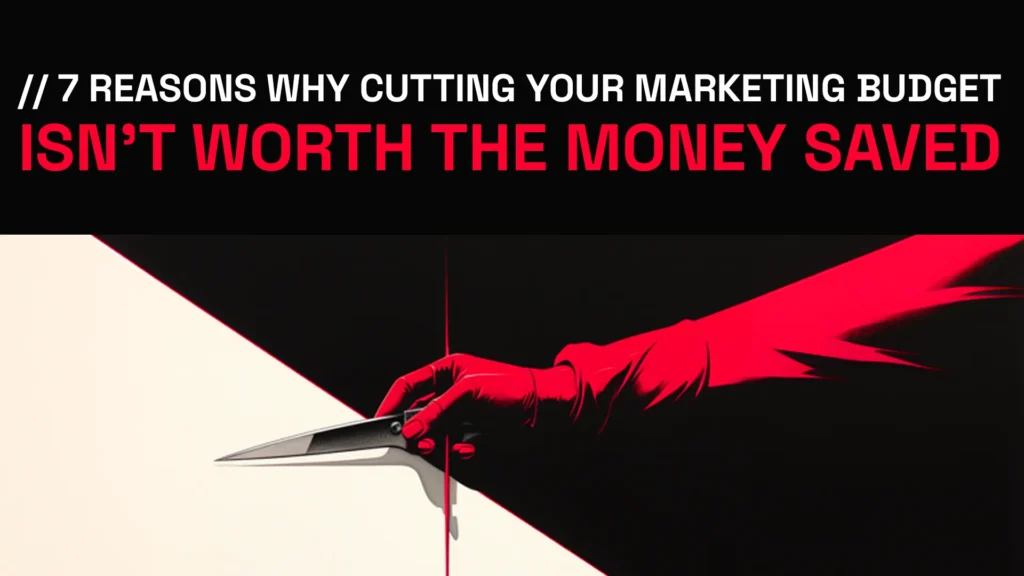TAKE YOUR BUSINESS TO THE NEXT LEVEL
Let us take marketing off your plate. Visit our pricing to learn more about working with Next Level.

When economic troubles hit, small business owners often consider cutting marketing budgets to reduce costs. However, curtailing your marketing efforts can severely impede your business’s success.
Marketing plays an integral role in acquiring customers, driving sales, and enabling growth.
Here are 7 reasons why cutting your marketing budget should be the last resort.
Marketing is not a cost center – it is an engine of growth.
Ongoing marketing activities help establish your brand, generate leads, build your customer base and increase profits. Without sustained marketing efforts, you lose your competitive advantage and stunt your company’s progress.
View marketing as an essential business investment that delivers ROI through increased revenues.
Competitors who maintain marketing efforts even during downturns can readily capture your disengaged customers.
If you cut marketing budgets, expect rivals to seize the opportunity to dominate the market. The temporary savings you gain from budget cuts often translate into long-term loss of market share, customers and future revenue potential.
Do not cede ground to competitors due to marketing myopia.
When the economy shifts, customer behaviors and preferences also change – more bargain hunting, conservative spending and online shopping occur.
Savvy marketing involves adapting your efforts to capture these opportunities.
For example, focus marketing messaging on value propositions. Seize the moment to connect with your audience when other players falter.
Staying visible through consistent marketing reinforces your brand promise and retains hard-won loyal customers.
Out of sight means out of mind – if customers do not see your brand, you fade from their consideration set.
After working tirelessly to foster trust and goodwill, disappearing from customers’ radars poses risks losing what you built.
Halting marketing spends seems beneficial in the short-term but restarting efforts is massively expensive.
Revival requires heaviest spending to make up for lost time and ground. Maintained budgets ensure you avoid scrambling and paying through your nose to regain marketing momentum.
Challenging times demand smart marketing optimization, not wholesale cuts.
Get the most bang for your buck by focusing spends on tactics with best ROI, aligning messaging with audience needs and consolidating customer touchpoints.
Such strategic marketing allows you to maintain presence even with leaner budgets.
The economy moves in cycles – cutting marketing now leaves you ill-prepared to capitalize when the next growth phase occurs.
Maintained marketing investment, even in lower budgets, keeps your business visible. This ensures you survive downturns and rebound stronger to relaunch full-scale efforts when tailwinds return.
Maintaining your marketing budget pays dividends in the long run while cuts can permanently impact your business. An adaptive, customer-focused marketing approach allows small companies to stay resilient in downturns and recover strongly.
Running a small business is tough amid economic troubles, but cutting your marketing budget can severely hurt your company’s success.
Marketing plays a pivotal role in acquiring customers, driving sales, and fueling growth. Maintaining your marketing effort preserves your competitive edge, retains brand loyalty, avoids costly restarts, and future-proofs your business.
With strategic optimization, you can do more marketing with less budget. An adaptive, customer-centric approach allows small businesses to stay resilient in downturns and recover strongly.
Ultimately, view marketing as an investment, not a cost – consistent effort powers business growth now and when prosperity returns.
Let us take marketing off your plate. Visit our pricing to learn more about working with Next Level.